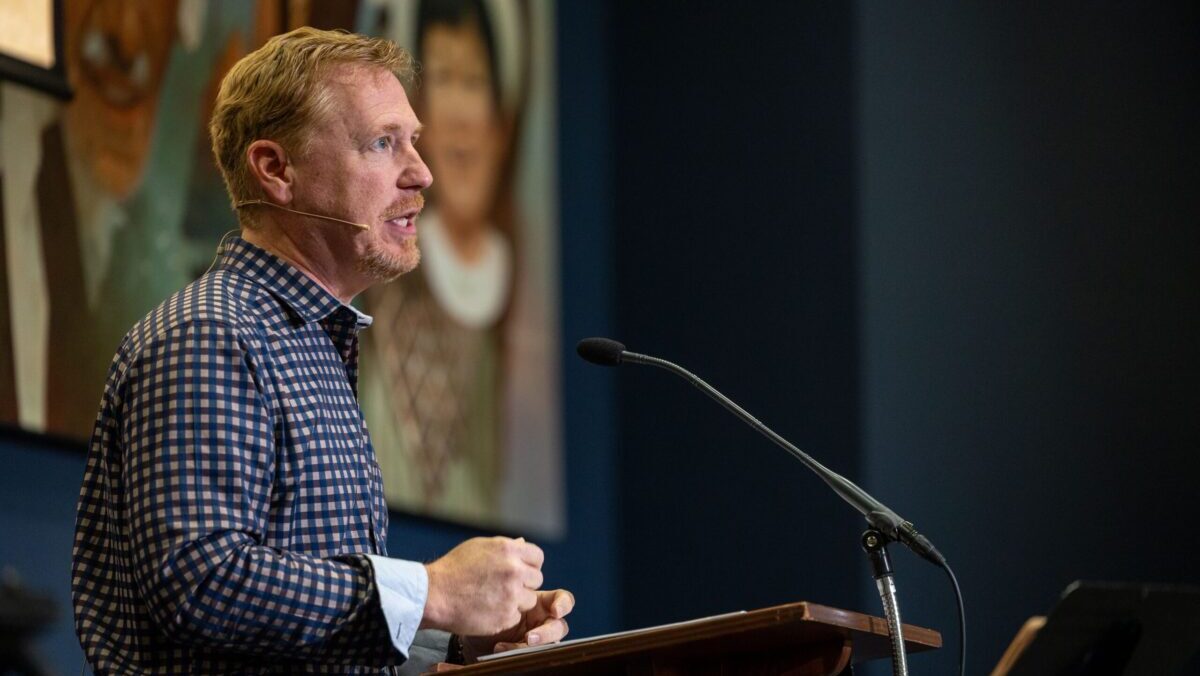The timing, according to Randal Lyle, “could not have been better.”
“I think I was like a lot of people,” said Lyle, longtime pastor of Meadowridge Church in Fort Worth, Texas. “After the end of the COVID-19 pandemic, I had some decision fatigue. I was tired of making decisions and having to backtrack.”
He was simply tired, and — self-described — “on the edge of burnout.” The four-week sabbatical he took last year, provided in part by Texas Baptists Center for Ministerial Health through a grant from the Lilly Endowment, was rejuvenating and refreshing.
“The goal was to come back renewed, to lead the church better,” Lyle said. “For me, it was a true break from having to make a lot of decisions that were for the church, for other people. It truly gave some relief.”
Rest and renewal
The Baptist General Convention of Texas offers the Pastor Sabbatical Grant, in partnership with eligible churches, to provide rest and renewal for pastoral leaders. The maximum grant award is $2,000 for a one-month sabbatical or $1,000 for a two-week sabbatical.
The Pastor Sabbatical Grant, as well as the Ministers Financial Health Grant, are made possible through the Center for Ministerial Health by a $1 million grant from Lilly Endowment Inc. When the grant was awarded in 2020, Craig Christina, associate executive director for Texas Baptists, said it was a way to demonstrate “practical compassion to our ministers.”
The intent of the Pastor Sabbatical Grant is to provide pastors the opportunity to take “time off for rest and/or studies,” according to Tammy Tervooren, grant administrator for Texas Baptists Ministers Financial Health team. “It could be a few days, a few weeks or on rare occasions even a few months. The pastor is given paid leave for rest, relaxation and perhaps deeper study.”
Tervooren says the sabbatical grant benefits not only the pastor, but also the churches, which often recognize leaders are ready to step up while the pastor is absent and perhaps are empowered to help share some of the load after his return.
“We thought it would be a good way to promote ministerial health and encourage pastors to go on sabbaticals, and then to provide the financial stability for the church to say, yes — go on sabbatical,’” Tervooren said.
Financial struggles
Meanwhile, the Ministers Financial Health Grant is designed to help pastors who are struggling financially. It provides financial literacy education and direct aid up to $2,500.
“We’ve found the common assumption is that pastors who might get into poor (financial) situations are poor money managers,” Tervooren saif. “But often it’s their vocation. Where they work, they’re making barely enough. But when an emergency happens — when the car breaks down — that’s when they have to start pulling out the credit card. We’ve found that pastors are managing their finances well, but have little to manage.”
To receive the financial health grant, pastors must participate in three financial counseling sessions, which are provided by the BGCT. Likewise, the church participates by watching an online video series titled, “Giving Your Money Purpose.” Its design is to help churches understand how to support their pastors and the best ways to provide compensation.
The financial relief grant is a matching grant.
“If they can raise up to $2,500, we’ll match it dollar for dollar,” Tervooren said.
Fueling the sabbatical
Lyle can attest to the positive impact of a sabbatical.
Although he had taken a sabbatical many years earlier, he needed another — this one focused less on seeking a vision for the church than “spiritual renewal.”
“My goal was to come back renewed to lead the church better,” he said.
The grant is designed to provide not only funds to fuel the sabbatical, but also to help the church fill the pulpit in the pastor’s absence.
In Lyle’s case, church members were able to preach.
Lyle began by spending five days alone in east Texas, “praying, reading the Bible, reading on some resources for personal spiritual growth.” He read several books recommended by the Center for Ministerial Health.
Lyle called it “incredibly helpful,” saying it “started me on a journey toward a more balanced schedule in all of life (not just while on sabbatical).”
He also tacked on about two weeks of vacation after the sabbatical. While he understands not every church can afford to allow a pastor to take that much time away, he has encouraged other pastors to consider a sabbatical — and to consider utilizing the opportunity afforded by the Pastor Sabbatical Grant. He recalls listening to a podcast during the sabbatical, and the topic was why so many pastors are burning out.
“There are so many more things now that pastors have to deal with,” he said, “whether it’s technology, or so many things pastors are expected to be experts on. But the guy said nothing ever gets taken away. You still have hospital visits and weddings and funerals and all the things pastors have done, but now there are all these other things on top of it.
“It can lead to feeling overwhelmed. I think a sabbatical can help you get recentered and get away from all of that.”
To read full story click here.
Read more stories on mental health here.
EDITOR’S NOTE — This story was written by George Schroeder and originally published by the Baptist General Convention of Texas.








